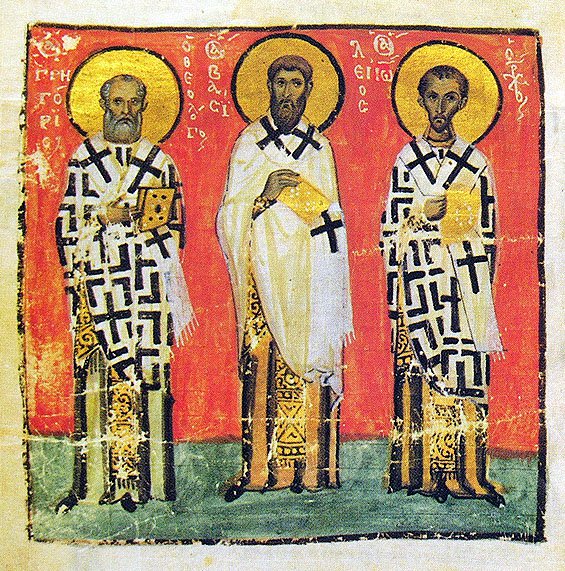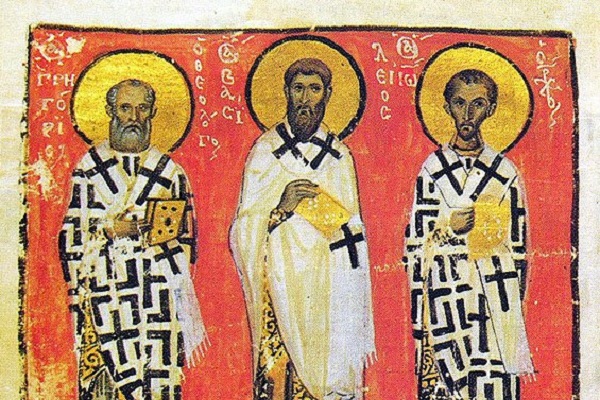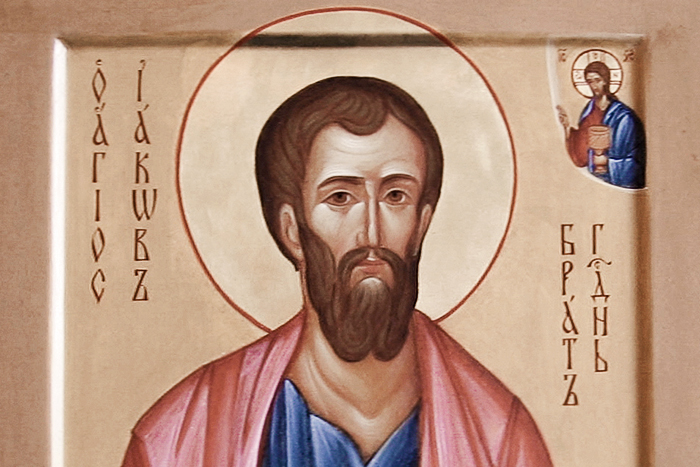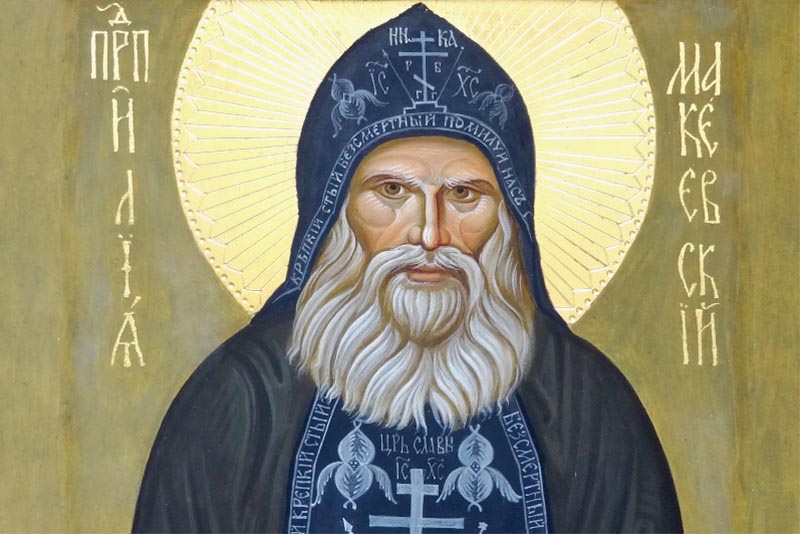
During the reign of the right-believing and Christ-loving Emperor Alexius Comnenus, successor to Nicephoros Botaneiates, a dispute arose in Constantinople among the wisest and most eloquent teachers of rhetoric regarding these three holy hierarchs. Some had the highest respect for the great Basil, calling him the supreme orator, surpassing all in deed and word. They considered him almost equal to the Angels, because he was steadfast, cautious in forgiving sins, and a stranger to everything earthly. For the divine Chrysostom they had less esteem, since he was inclined to have mercy on sinners and quickly accepted their repentance. Others extolled the godly Chrysostom more highly than Basil the Great or Gregory the Theologian, as he was loving and condescended to human weaknesses, and by his sweet discourses guided all to remorse for sin. Still others preferred Gregory the Theologian, claiming that his writings were unsurpassed in clarity and expressiveness. Insisting that he had no peer as an interpreter of Holy Scripture and that he excelled as a stylist all past and present masters of Hellenic learning, they honored Saint Gregory and demeaned the others. Many became involved in the dispute, and some scholars began calling themselves Johnites, some Basilians, and come Gregorians.
While matters were in this state, the three great saints appeared in a vision, first individually, then together, to the holy John, Bishop of Euchaita, whose profound knowledge of Greek rhetoric and philosophy is evident from his writings. They told him, “We are equal before God and in complete concord with one another. Inspired by the Divine Spirit, each of us wrote to serve men’s salvation. What we were taught mystically, we transmitted openly. There is no first or second among us. Cite one of us, and you will find that the other two are in agreement with him. Command the disputants to put aside their differences, for just as when we were alive, so even now our concern is to bring peace and oneness of mind to the ends of the earth. Commemorate us together on a single day, compose a festive service to us, and inform everyone that we share a common rank before the Lord. Trusting that we enjoy God’s favor, we promise to further the salvation of those who honor our memory.” So saying, they ascended to heaven, surrounded by ineffable Light and calling out each other’s names.
The holy Bishop John quickly reconciled the factions, for he was esteemed by all because of his virtuous life and wide learning. In obedience to the saints, he established the feast of the Three Hierarchs and persuaded all the churches to observe it solemnly. His wisdom is evident in the date he chose for the synaxis of the saints. Saint Basil the Great is commemorated individually on January 1st, the divine Gregory on January 25th, and Saint John Chrysostom on January 27th. Ordaining that their common feast be held on January 30th, he fittingly crowned the celebration with canons, troparia(hymns), and praises.
In conclusion, we should add the following. Saint Basil the Great stood above all the teachers of his own time and antiquity, having mastered the art of oratory and the science of philosophy. He led a most ascetical life, acquired every virtue (especially chastity and voluntary poverty), and was granted the vision of God. He was forty years old when he became a bishop, and died nine years later. Saint Gregory’s life was so lofty and holy that it could be portrayed symbolically as a stature of a man atop a pillar constructed of good deeds. Saint Gregory attained the summit of theology, vanquished every adversary by his wise arguments and expositions of the dogmas of faith, and was justly awarded the title “the Theologian.” He was a bishop in Constantinople for twelve years, during which time he confirmed the capital in Orthodoxy. According to his Life, he was Patriarchate only for a short time, and stepped down from his throne because of illness. He was about fifty-nine years old when he departed to heaven. Regarding the divine Chrysostom, it is fair to say that he surpassed all the sages of ancient Greece in wisdom, clarity of expression, and eloquence. His homilies on the divine Scripture are superlative. In virtue and the vision of God, Saint John far outshone his rivals. He was a wellspring of mercy and love, and had great zeal for preaching. He lived to the age of sixty, having served as archpastor of Christ’s Church for six years. By the prayers of these three hierarchs, may Christ God, Who is forever blessed, quell the uprising of heretics, preserve us in peace and unity, and deem us worthy of His Kingdom. Amen.
Apolytikion (Dismissal) Hymn. First Mode
The three most great luminaries of the Three-Sun Divinity have illumined all of the world with the rays of doctrines divine and true; they are the sweet-flowing rivers of wisdom, who with godly knowledge have watered all creation in clear and mighty streams: The great and sacred Basil, and the Theologian Gregory, together with the renowned John, the famed Chrysostom of golden speech. Let us all who love their divinely-wise words come together, honoring them with hymns; for ceaselessly they offer entreaty for us to the Trinity.
Kontakion in Second Mode
Receive, O Lord, the Sacred Heralds who preached God, the pinnacle of Teachers, unto the enjoyment of Your riches and rest. You have received their labors and their suffering as being above and beyond all fruitful offering. For You alone glorify Your Saints.




